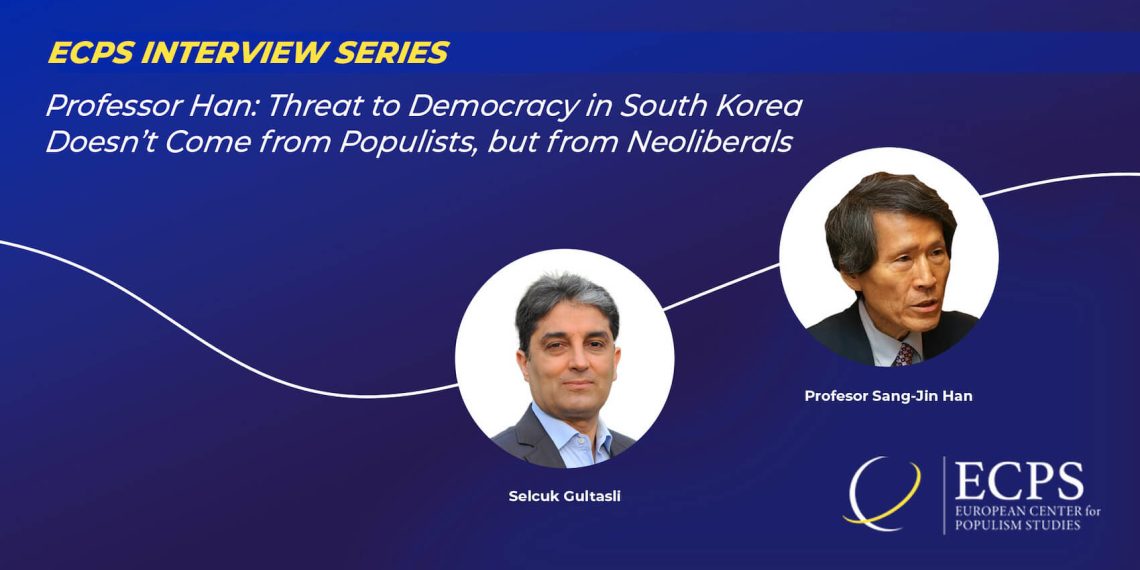When queried about the correlation between populism and democracy and the potential jeopardy to democracy in South Korea, Profesor Sang-Jin Han argues the potential threat to democracy in South Korea does not come from populist citizens, but from neoliberal ones. By sharing insights from his 2018 empirical study, he elucidated, “My research aimed to discern which citizens genuinely endorse autocracy and strong leadership. Surprisingly, the findings unveiled that those meeting specific criteria for populism did not inherently endorse robust autocratic leadership. Rather intriguingly, it was the neo-liberal citizens who exhibited a tendency to endorse such authoritarian leadership.”
Interview by Selcuk Gultasli
Giving an exclusive interview to the European Center for Populism Studies (ECPS) on Monday, Profesor Sang-Jin Han, Emeritus Professor of Sociology at Seoul National University in South Korea, says the potential threat to democracy in South Korea does not come from populist citizens, but from neoliberal ones.
When queried about the correlation between populism and democracy and the potential jeopardy to democracy in the nation, Professor Sang-Jin Han shared insights from his 2018 empirical study. He elucidated, “My research aimed to discern which citizens genuinely endorse autocracy and strong leadership. Surprisingly, the findings unveiled that those meeting specific criteria for populism did not inherently endorse robust autocratic leadership. Rather intriguingly, it was the neo-liberal citizens who exhibited a tendency to endorse such authoritarian leadership.”
According to Professor Han, the perplexing aspect is why neo-liberal citizens, who typically enjoy the benefits of political liberty and economic liberalism, would support authoritarian leadership. One possible explanation is that they perceive a threat from a powerful civil society and civil movements, fearing that these forces could potentially hinder democracy. In their view, embracing a strong leader is a means to mitigate this perceived threat and safeguard against the influence of civil society.
This puzzling phenomenon raises questions about the motivations of neoliberal citizens, who, despite enjoying political and economic liberties, rally behind authoritarian leaders. Professor Han suggests that their support may stem from a perceived threat posed by powerful civil society and civil movements, which they fear could hinder democracy.
The interview delves into various aspects of populism in South Korea, exploring its historical roots, manifestations, and implications for democracy. Professor Han also challenges the traditional left-wing/right-wing dichotomy often applied to populism, arguing that populism in Korea transcends ideological boundaries and is more about emotion than specific political positions. He highlights the rise of a populist leader, Cho Kuk, and the emotional fervor observed during recent elections, signaling a potential threat to democracy.
Moreover, Professor Han sheds light on the genealogy of populism in Korea, tracing its origins to the aftermath of the Korean War and its enduring influence on the country’s political landscape. He emphasizes the unique context of Korean populism, distinct from Western models, and the role of digital media in shaping public discourse.


